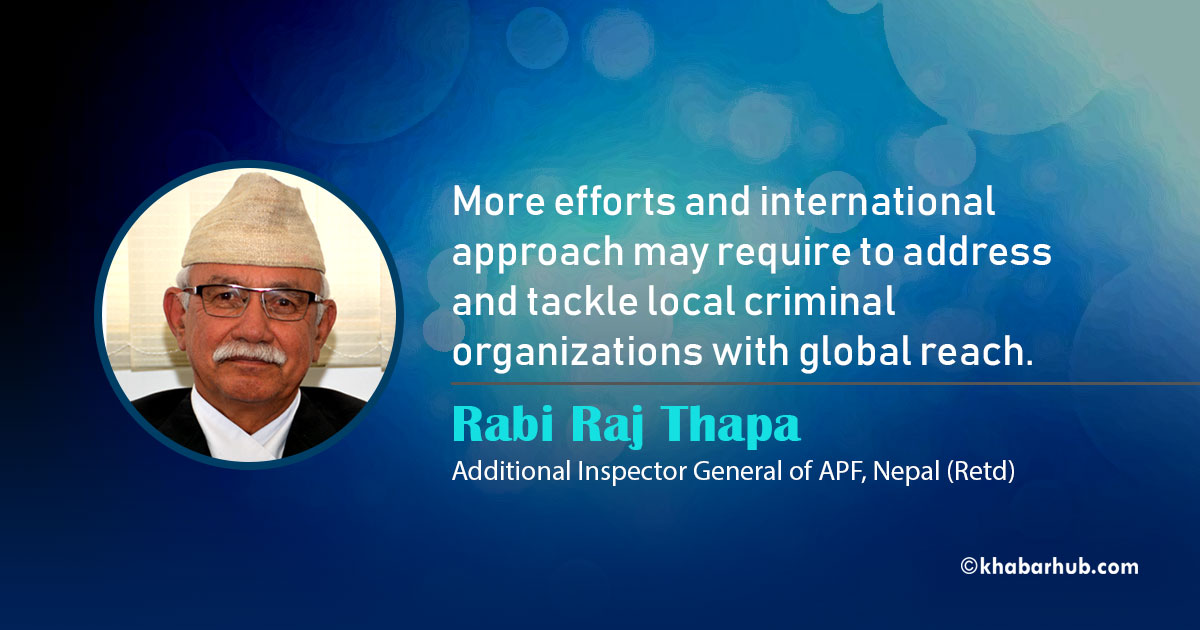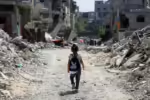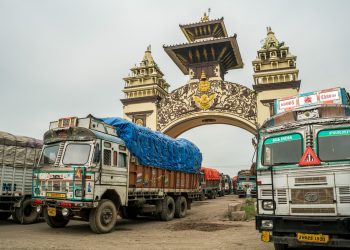In Nepal, like any other countries of the world, there is a tendency of oversimplification and generalizations in describing and tackling organized crime. In the case of fragile states, in particular, there is a further tendency to use the term ―Organized Crime Groups (OCGs) or ―Transnational Organized Crime (TOC) to describe all types of organized crime activity, as well as seeing TOC as an inevitable consequence of the fragile environment without understanding the dynamics of how and why they occur (Keene, 2018, p. 9).
It is a fluid and diversified industry that engages in a host of illicit activities including drug trafficking, human trafficking, piracy, and counterfeiting.
This may be one of the reasons why Nepalese government to responsible law enforcement officers to the people, in general, take organized and transnational crime as a normal destiny to be taken too lightly as if it is nothing. TOC has recently developed in ways that place it at the top of the international agenda. Advances in technology and communications as well as in the global political economy have brought about significant changes in the way TOC behaves and operates. TOC is established in many countries around the world irrespective of their levels of development. It is a fluid and diversified industry that engages in a host of illicit activities including drug trafficking, human trafficking, piracy, and counterfeiting.
Although it may affect strong states, it is above all conflict-affected or otherwise weakened states that are vulnerable to TOC predations and may serve as bases for international criminal enterprises. Most widely-accepted definitions, however, present two important elements when defining TOC: 1) sales of illegal goods and services; 2) a certain organized structure with some form of hierarchy that has its goal the profiting from the above-mentioned provisions of goods and services; and 3) the perpetuation of their existence through violence (or threat of violence) and corrupt relations with public officials.
The sweeping generalizations which are often used to bracket together the international crime and fragile states as a leading global threat ‘tend to ignore important nuances in the way particular countries and regions have been incorporated into illicit markets’ (Miraglia & Briscoe, 2012).
With secrecy being one of the foundations of TOC‘s survival it is difficult to assess the scope of its diversity and operations; however today we do know much more about TOC than ever before. But the problem with the TOC is the lack of adequate understanding of the term. However, (OECD) elucidates TOC as follows: With secrecy being one of the foundations of TOC‘s survival it is difficult to assess the scope of its diversity and operations; however today we do know much more about TOC than before. The sweeping generalizations which are often used to bracket together the international crime and fragile states as a leading global threat ‘tend to ignore important nuances in the way particular countries and regions have been incorporated into illicit markets’ (Miraglia & Briscoe, 2012).
State Failure and Organized Crime
US Fund for Peace and Foreign Policy magazine have identified 12 indicators of state failure that is further sub-divided into social, economic and six political indicators. It has pointed demographic pressure, refugees or internally displaced people, vengeance and ethnic grievances/violence, and human flight as social indicators. It has identified – uneven economic development and economic decline, the balance of payment, inflation, unemployment and capital flights as economic indicators.
And, most importantly, it has identified six political indicators as – the criminalization of politics, endemic corruption and lack of transparency and accountability, and the loss of people’s confidence on state institutions, deterioration of public services, politically induced violence, abuse of legal and political rights; abuse of security institution as ―state within a state‖, factions and fragmentation among ruling elites and state institutions, and growing foreign interest, influence and political indicators leading to a failed state.
Although Nepal has got a two-thirds majority government and the government is striving for rapid economic development, the indicators are showing quite the opposite. All these have to be studied on the basis of local, national, serious organized and including transnational crime indicators, corruption, money laundering, and capital flight, brain drain. According to Fragile State Index 2018, Nepal has fared Afghanistan 9th Position with 107.3 points, Pakistan (17th Position with 98.9 point), Nepal in the 33 position with 91.0, point, Bangladesh 39th Position with 89.1 Point, Sri-Lanka – 47th Position with 86.6 Point, India – 72nd Position with 77.9 Point, and Bhutan with 83rd Position 76.0 Point, Maldives in the 86th Position with 74.4 Points (The Fund for Peace, 2018).
In such a situation, adequate consideration and response need to be prioritized so that it does not aggravate the people so they may come to the street to challenge the government institution as a whole.
Models of Organized Crime OECD has also classified different types or models of organized crimes as follows: Local organizations primarily concerned with local crime; Local organizations with global reach (illicit production) Transnational logistical networks and Fragile states as transit points for transnational organized crime.
Local organizations are primarily concerned with local crime. Local crime may occur and become exacerbated as a result of the absence of a functioning state or inclusion with the state. Examples have been observed in post-conflict countries where OCG have been involved in significant criminal activities with strong state links. However, their linkage with transnational illicit markets carries marginal importance which may be sporadic than systematic. In tackling localized crime, a localized disruption strategy utilizing local actors may be sufficient. In such a situation, adequate consideration and response need to be prioritized so that it does not aggravate the people so they may come to the street to challenge the government institution as a whole.
The police encounter of Dinesh Adhikari aka ―Chari to Ghaite, Ganesh Lama, Chakre Milan, Gorkhali and various dons may be classified under this category. This also shows the risk of police high-handedness of orchestrating fake encounters that may lead to more revenge killing and gun culture and violence as seen in Mexico and Afghanistan and Sudan and so many other post-conflict countries.
Local organizations with global reach (illicit production): In comparison to the locally confined crimes, more efforts and international approach may require to address and tackle local organizations with global reach. Recently many events have been exposed by Nepalese media where Nepalese local parties with global reach have been questioned by the public at least. The exposures of seven business houses with the direct link with PANAMA PAPERS, 52 business houses with their undeclared foreign bank accounts abroad and purchase of aboard to widebody aircraft has been the latest episode where the suspected persons are Nepalese with international connections.
Such parties can be described as having TOC origin at home and their unspecified questionable involvement abroad. Some of the examples are, cultivating and producer nation of any narcotic substance or illicit goods manufactured in conditions of conflict and distributed to the global market through the Journal of APF Command and Staff College international commercial intermediaries. The key factor that determines these types of organized crime groups is their supply chain requires logistical skills in transport and delivery, as well as domestic and international connection to succeed.
A recent case of a precursor chemical, pseudo-ephedrine was seized where the owner of a big pharmaceutical company and also the founder of the prestigious bank was arrested and indicted. Sanghai who owned a pharmaceutical company who was also the founder of Sunrise Bank was arrested by the Narcotic Control Bureau of Nepal. The chemical he used to trade via Nepal was neither produced in Nepal not used to produce any medicine. But despite all hue and cries, the case got cooled down with any further investigation without any legal action and prosecution.
The notorious 33 kg gold smuggling can be taken as an example of such a case. The key factor that determines the success of this type of OCG is it illicit supply chain which requires logistical skills in transport and delivery, as well as domestic and international connections to succeed. Here, domestic and international interventions combined would seem most appropriate to disrupt the criminal network both in-country and internationally.
Transnational logistical networks: The significance of the third category identified, namely transnational logistic networks, is that they play a central role as intermediaries in the global distribution of illicit goods. Although as much as 85% of the total value of trade is estimated to derive from the drug trade according to the UNODC, established illicit networks can also be utilized for other criminal commodities (UNODC 2010). Fragile states as transit points for transnational organized crime: The fourth and final category identified by OECD is nation-states, which allows countries to become safe havens for global, local, and international crime. This is highly relevant as the state, which is supposed to disrupt crime, is instead a sponsor and an enabler of crime; … in which corruption plays the key (Keene, 2018, p.11).
(To be continued…)
Views expressed in this article are the author’s own and do not necessarily reflect the stance of Khabarhub.









Comment